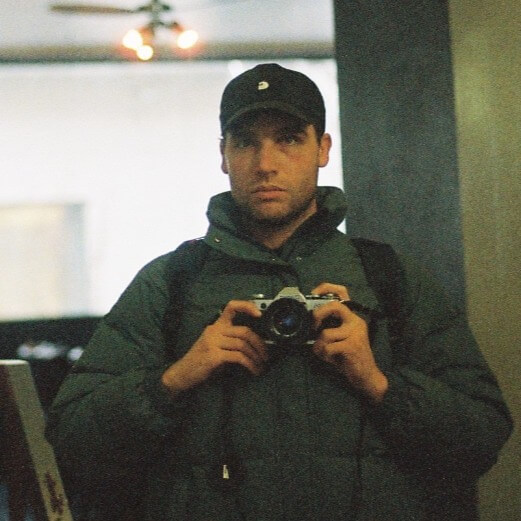Lionel Delhaye
2025
Belgium
French
fiction
drama | thriller | women
20 minutes
Narrativ Nation
On the opening night of the play in which Léa has the lead role, a rape complaint was filed against her director. Twenty minutes before curtain time, the theater management decides to proceed with the performance. It’s up to Léa to decide whether or not she will go on stage.
LIONEL DELHAYE expresses his desire to always push further in exploring his cinematic universe. Among his works are the short films Gaspard (IAD graduation film, 2014) and Blue Boy (2017), the series Typique (2013-2016), and the family series Lucas etc. (2017-2019). He has also directed episodes of the daily series Demain Nous Appartient and Ici Tout Commence, including the notable episodes surrounding the Cévennes train accident. Currently, he is developing his first feature film, Un vrai flic.

- Gaspard (2014, student short)
- Blue Boy (2017, short)
For several years, Lionel Delhaye has observed intense debates surrounding the presumption of innocence, cancel culture, and the separation of the artist from their work. These discussions have stirred deep discomfort in him, as he has struggled to find his own position. On one hand, he strongly advocates for the presumption of innocence, opposes cancel culture, and believes that justice should not be served by individuals. On the other hand, he feels deeply uneasy about the idea of promoting an artist accused of rape. He believes it is essential to listen to, support, and above all, not question the testimony of presumed victims.
With BREAK A LEG, Delhaye sought to illustrate the complexity of this debate, one he has personally grappled with. When faced with such a dilemma, what stance should one take? To explore this question, he needed to create a morally complex situation, immerse a character in it, and, in doing so, force himself to live through this conflict while also inviting the audience into it.
The film examines the difficult moral choices its protagonists must make in a context where urgency leaves little room for calm debate. At the same time, it highlights the profound and immeasurable consequences triggered by an assault or rape—creating a dramatic ripple effect that influences all decisions related, directly or indirectly, to the perpetrator. Léa experiences profound indignation upon realizing that the rest of the team is willing to go on stage. This indignation marks the first step toward commitment. Delhaye sees outrage as not only natural but vital. BREAK A LEG speaks to the necessity of indignation, the freedom to rebel, and the importance of following one's intuition.
The urgency of the first performance heightens the tension and uncertainty, making the characters' decisions even more difficult, as they must be made quickly. More importantly, this urgency forces the protagonist to take a stand—because if she does nothing and goes on stage, the decision is effectively made for her. This is why Delhaye chose to shoot the film in a single continuous take, without any artifice or trickery, to immerse viewers in an authentic, direct experience with no escape—trapping them just as Léa is trapped.
Delhaye felt the need to tell the story of a character who, like him, finds herself in this uncomfortable "in-between," a kind of "indirect victim." But why tell the story from a female perspective? Léa’s dilemma is even more powerful because society often expects women to offer immediate and unconditional support to victims. Furthermore, Delhaye believes that films featuring strong, rebellious female protagonists who challenge power dynamics remain all too rare.
In a post-#MeToo world, BREAK A LEG unfolds as an intense, single-shot exploration of moral and political dilemmas. The film immerses us in the urgency of seeking support and validation while confronting the deep discomfort of moral inconsistency. In just 20 minutes, it powerfully illustrates how difficult it is to align one's beliefs with personal ambitions—especially when standing up for one’s values comes at the cost of a lifelong dream.